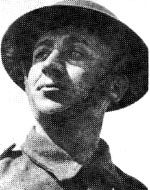Meller, Meir
Son of Efraim. He was born on June 17, 1916 in Chelm, Poland to a conservative family. In 1934 he completed his high school studies at the Gymnasium in the city of Kovel. At the school, he excelled in his studies and showed special talent in mathematics and physics. In 1936 he immigrated to Eretz Israel after being accepted as a full-time student at the Hebrew Technion in Haifa. He was registered in the queue among the students at the Student Union, but his meager income forced him to postpone his studies. He went to the labor office of the Histadrut and did various tasks, including exhausting work at the Haifa port. At the end of his work he became absorbed in the labor movement, abandoned his studies altogether and in February 1938 came to the Ginegar group. He quickly acclimated to the group, progressed well in the study of the Hebrew language, and acquired a broad knowledge of Hebrew literature and the history of the Zionist movement and its problems. He also excelled in all the crafts in which he worked: as a carpenter, a forest man, and even a kitchen worker. On 11 November 1940, he volunteered for the British Infantry in the British Army, which was later the basis for the establishment of the Jewish Brigade. Here he excelled as a model soldier, devoted and disciplined, and was one of the initiators and activists of a mutual aid factory in his company. After the Brigade left for the Italian front, it joined the Jewish survivors in this country. Towards the exit to the front, Meir headed north toward the Po Valley, near the front line, to complete the military equipment of his unit. On the 22nd of Shevat 5705 (5.2.1945), he arrived at Ancona, where he was arrested, and the soldiers got out of the cars. While some of them stood on the road, two cars emerged from both sides of the road, and Meir, who did not manage to get off the road, was injured and wounded, several meters away. He was taken to the hospital and died half an hour later. He was buried in the military cemetery in Ancona. His friends at Kibbutz Ginegar published a booklet in his memory on the anniversary of his death. His name is commemorated in the book “The Jewish Brigade.”
